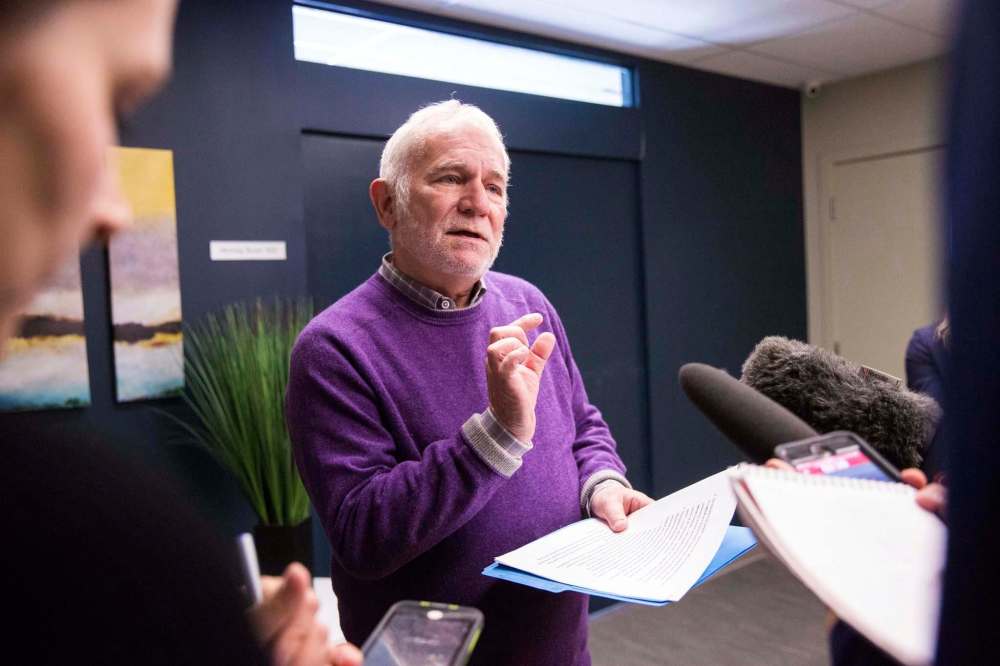Third party should review health reforms
Advertisement
Read this article for free:
or
Already have an account? Log in here »
To continue reading, please subscribe:
Monthly Digital Subscription
$0 for the first 4 weeks*
- Enjoy unlimited reading on winnipegfreepress.com
- Read the E-Edition, our digital replica newspaper
- Access News Break, our award-winning app
- Play interactive puzzles
*No charge for 4 weeks then price increases to the regular rate of $19.00 plus GST every four weeks. Offer available to new and qualified returning subscribers only. Cancel any time.
Monthly Digital Subscription
$4.75/week*
- Enjoy unlimited reading on winnipegfreepress.com
- Read the E-Edition, our digital replica newspaper
- Access News Break, our award-winning app
- Play interactive puzzles
*Billed as $19 plus GST every four weeks. Cancel any time.
To continue reading, please subscribe:
Add Free Press access to your Brandon Sun subscription for only an additional
$1 for the first 4 weeks*
*Your next subscription payment will increase by $1.00 and you will be charged $16.99 plus GST for four weeks. After four weeks, your payment will increase to $23.99 plus GST every four weeks.
Read unlimited articles for free today:
or
Already have an account? Log in here »
Hey there, time traveller!
This article was published 16/05/2019 (2402 days ago), so information in it may no longer be current.
Health-care watchdogs are talking about the return of Dr. David Peachey to Manitoba. The re-emergence of the architect of Manitoba’s health reforms needs to be critically examined. Should the person who developed a plan be the same person who evaluates its success or failure?
Health Minister Cameron Friesen has asked Peachey to review and offer recommendations on the second phase of the health-care overhaul, with consideration of the closure of the Concordia Hospital emergency room. As Friesen puts it, Peachey is conducting “a quality-assurance exercise” with the expectation that the review will be complete within two weeks.
The Peachey report was commissioned by the previous NDP government and taken up by the current Progressive Conservative government. There were a number of recommendations presented in the report, which included closures of emergency departments, consolidation of health services, changes to mental-health and addictions approaches, and calls for dedicated funding to address inequities in the system.

The government accepted parts of the report for its health-care overhaul, but by no means are the recommendations being implemented as a whole. While most Manitobans will not wade through the 240-page report, they undoubtedly have experienced or heard about the results of its partial implementation.
We are currently in Phase 2 of the “healing our system” overhaul, and it is no secret that both Phase 1 and Phase 2 have been marked with massive disruptions and issues. From chronic understaffing to deletion notices of staff positions and reductions in services for Manitobans, the health-care overhaul has not been smooth sailing, most notably for our health-care workers and quality of care.
There is much debate regarding the effectiveness of the health-care changes. In fact, figuring it out can be likened to an episode of the old TV game show To Tell the Truth. Transparency and accountability are lacking as citizens groups are forced to rely on freedom of information requests to extrapolate information from government regarding items such as spending levels on personal-care homes, cancelled cardiac surgeries and the use of private nurses to fill staffing gaps.
Even what is actually being spent on health care is marred in political pivoting and misinformation. For example, the budgeted amounts dedicated to health care remain underspent — in fact, in the previous fiscal year, to the tune of $238 million. The underspending on health services is in large part due to regional health authorities following directives from our government to find “efficiencies” — more commonly known as cost-cutting — which come at the expense of a high-quality, safe and accessible public health-care system.
These are being felt in all regions, from the loss of maternity care in Flin Flon to the closure of the Family Medical Centre at St. Boniface Hospital.
Peachey’s re-emergence for a snap two-week review is falling along two dominant political narratives.
On one hand, the government is assuring folks that Peachey is here to do the responsible thing, to ensure the plan is going well and that Manitoba is proceeding as it should; on the other, the opposition parties are saying the pop-by from Peachey is an indication the government does not actually have a plan and things are going off the rails.
The fact is Peachey is being paid approximately $100,000 by the government to deliver an assessment of his own recommendations in two weeks.
The health minister expects Manitobans to accept this timeline and his methods of inquiry at face value. What about the objectivity of his assessment? While we can respect Peachey and his commitment to academic integrity, it does not preclude him from the human condition and possible attempts to save face if his recommendations are not delivering results as promised.
Due to the many concerns associated with the health-care overhaul, the Manitoba government would be wise to pause the second phase of the overhaul and, instead of summoning Peachey to do the review, seek a neutral third party.
Finally, Peachey’s arrival and soon-to-be-released assessment appear to coincide with the premier’s indications that an early provincial election might be coming. It is disconcerting that this government continues to place political points ahead of what is best for Manitobans and what is best for our health-care system. Playing politics with people’s health is irresponsible and reckless.
Brianne Goertzen is the provincial director of the Manitoba Health Coalition and a Canadian Centre for Policy Alternatives — Manitoba steering committee member. She serves as a school trustee for Ward 3, River East Transcona School Division.


